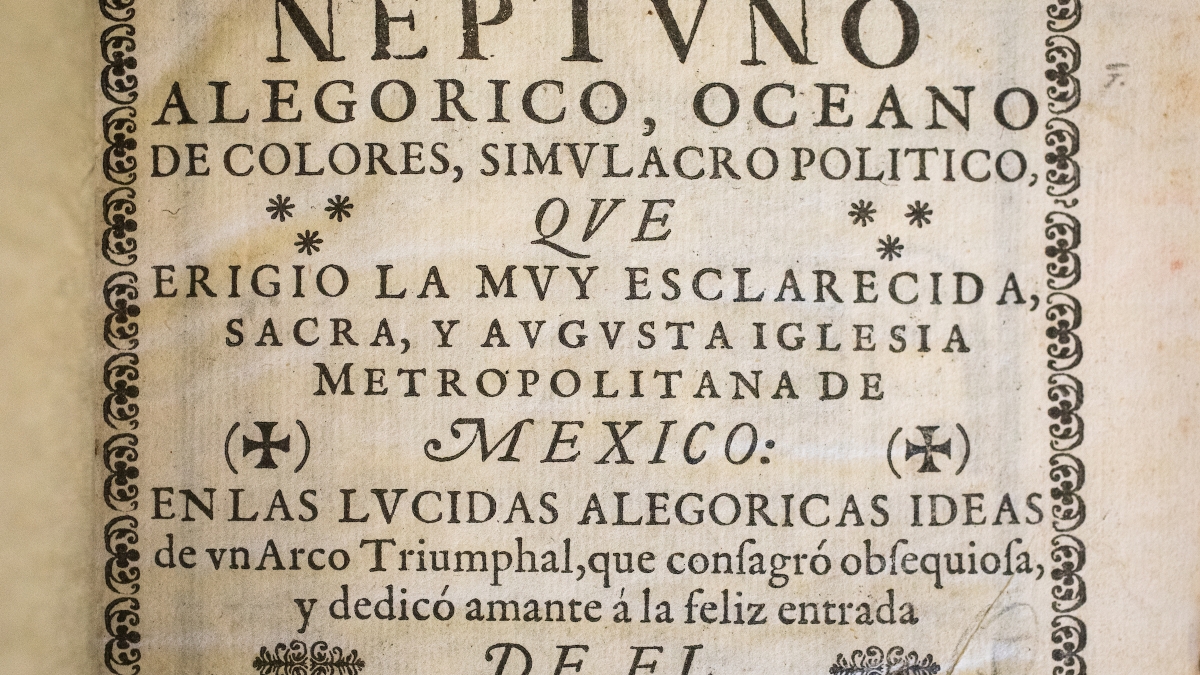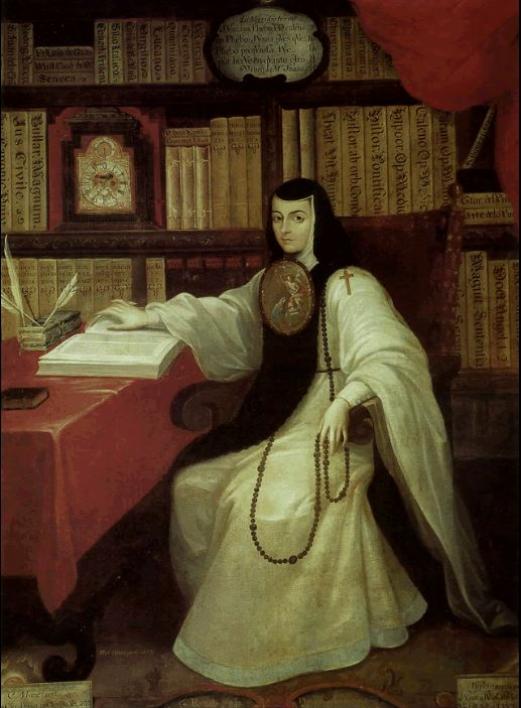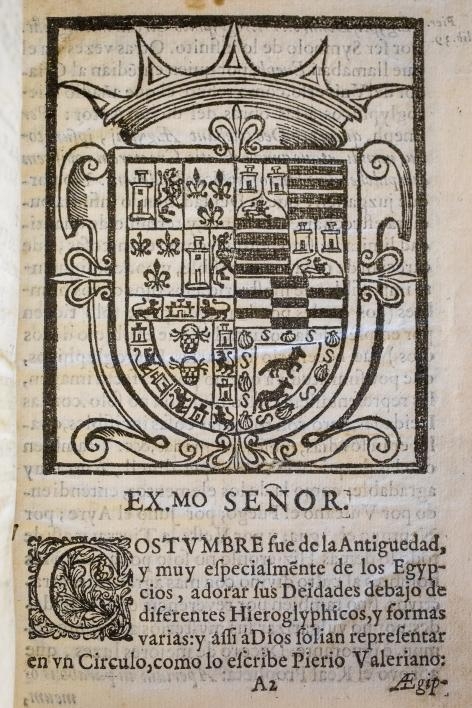An extremely rare, first-edition copy of a 17th-century literary work by one of the world’s most fascinating female writers has found a home at Arizona State University.
The writer is Sor Juana Inés de la Cruz (circa 1651-1695), the premiere poet of the Americas, a celebrity in her day and now considered an early feminist, who joined a convent in order to devote her life to the study of science, philosophy, writing and art.
The book, or booklet, is "Neptuno alegórico," an essay commissioned by the archbishop of New Spain, or Mexico, in 1680, documenting the arrival of the new Spanish viceroy.
In the essay, Sor Juana describes an arch that was used for the viceroy's procession into Mexico City and the classical artwork that decorated it. The booklet was printed unbound and in limited number to be given as gifts.
Just two known original copies exist.
“This is a rare ephemeral document that is now the anchor of our colonial Latin American collection at ASU Library,” said Seonaid Valiant, curator for Latin American studies at the ASU Library. “The piece is well-known, often included in collections of Sor Juana’s writing, and lets us study a unique style of printing.”
Sor Juana’s essay depicts the new viceroy as Neptune, emerging from the sea, a display of the breadth of her classical knowledge, says Valiant.
“She was self-educated and knew all the great classical scholars. Because we have the first edition, we get to see the essay before her corrections were incorporated in the third edition,” said Valiant. “It’s a fascinating document.”
An American individual
Nothing about Sor Juana’s life is ordinary.
She built one of the largest personal libraries in the Americas, learned how to read by the age of 3, and declined many a marriage proposal, ultimately becoming a nun in an effort to continue her self-directed scholarship.
Born in New Spain, she joined the Order of Saint Jerome, or Hieronymites, in order to further cultivate her intellectual life, which at the time was not reserved for women.
“She entered a convent in order to be a scholar, slowly showing that her writing could be a benefit to God,” said Valiant. “She cared deeply about the quality and purpose of her life, and vocalizing this made her an American individual. Sor Juana uses the word ‘I’: She tells us, ‘I have ambition. I have needs.’ She is one of the first Americans to say this.”
By the time Sor Juana wrote "Neptuno alegórico," her literary accomplishments were becoming better known throughout Spain and New Spain.
Emil Volek, a professor in the School of International Letters and Cultures at ASU, says the acquisition of the booklet is significant, in part, because it had helped cement her career as a writer.
“It was this booklet that launched her secular career,” said Volek, the author of several critical writings about Sor Juana’s work. “It will stimulate research already done on her at ASU and will further strengthen the national standing of ASU as a powerhouse and a well of knowledge.”
Valiant, who facilitated the acquisition, is working to grow the Latin American collection at ASU Library, which was established in the 1970s to support faculty and graduate students doing work in this period.
“These earlier books are harder to find, but it is important to have them at hand in order to study the content as well as the history of the book,” she said.
University Librarian Jim O’Donnell, a classics professor in ASU's School of Historical, Philosophical and Religious Studies, said Sor Juana’s "Neptuno" is “so rare, so special, so fascinating … it’s the kind of library acquisition that gives its readers gooseflesh.”
Readers of Sor Juana can experience the booklet — gooseflesh and all — by requesting an appointment with Kathy Krzys, the library's curator for rare books and manuscripts.
Top photo: A rare first edition of "Neptuno alegórico" by Sor Juana Inés de la Cruz, the premiere poet of the Americas (1651-1695). The original booklet, which was commissioned by the archbishop of New Spain, or Mexico, in 1680, now has a home at Arizona State University. Photo by Charlie Leight/ASU Now
More Arts, humanities and education

Petroglyph preserve celebrates 30th anniversary with ancient, modern tales
The Deer Valley Petroglyph Preserve provides a beautiful walk through a pristine desert where chuckwalla lizards are as plentiful as the cacti that comes in many shapes and sizes.It’s also a step…

Kaleidoscope short film contest inspires powerful binational filmmaking in its second year
“We come to this country not to steal anybody’s jobs but to take advantage of the opportunities that the rest ignore. We’ve been taking care of the American soil for many years. But our hands will…

ASU's Neal Lester reflects on life, death of poet Nikki Giovanni
When Neal Lester heard on Monday that poet and activist Nikki Giovanni had died, the news hit hard.Lester, the founding director of Arizona State University’s Project Humanities and a Foundation…



